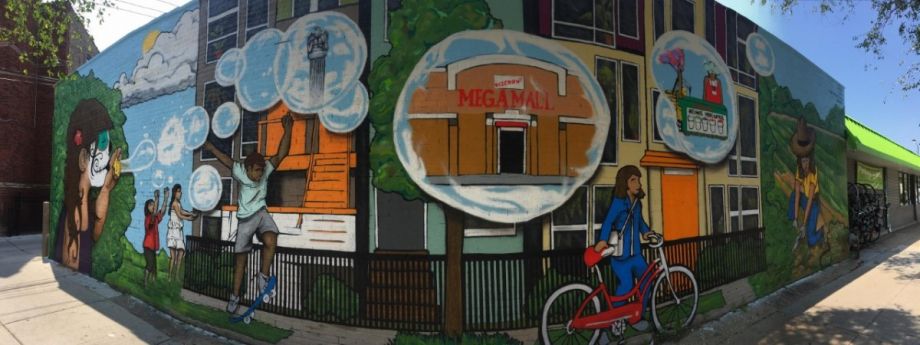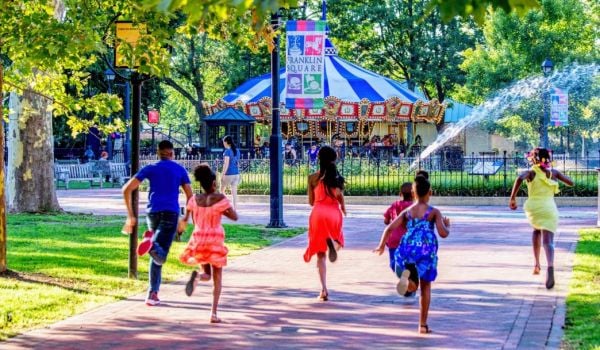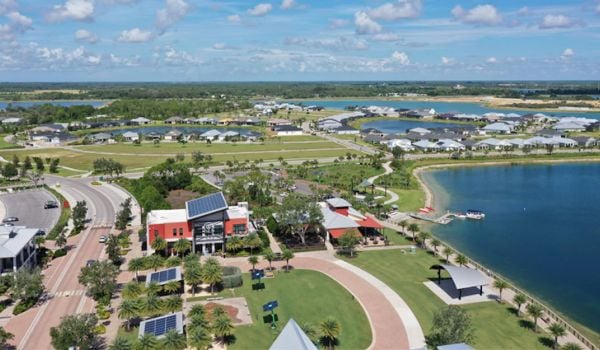With the ravages of COVID-19 illuminating the nation’s deep disparities, a fundamental principle remains true if there is to be an equitable recovery — community-driven development rooted in collaboration must be at the core of supporting equitable, healthy and resilient communities.
From outright racist attacks to specific vulnerabilities resulting from inequality in access to healthcare, housing, clean air and healthy food, low-income and families of color are suffering disproportionately from COVID-19.
That truth is not a surprise to many of those who work in community development, public health and environmental justice. The pandemic is just the most dramatic illustration of what they have long known – low-income and communities of color lack equal access to a wide range of foundational support systems necessary for good health and opportunity.
But extreme situations can sometimes lead to new realizations, and in this case, it appears to be this: Cities and localities are clamoring for a model that ensures all voices are included and power is built for an inclusive recovery.
Those communities that have laid the groundwork on such a model appear to already be benefiting.
It was no accident, for example, that Chicago Mayor Lori Lightfoot knew the importance of tracking demographic information among COVID-19 victims. She was aware of the key connections between income, race, health, and resources, and how groups from the city to the neighborhood level can work together on solutions.
The startling statistic that emerged – and that got the nation’s attention – was that 72 percent of those who have died from the novel coronavirus in Chicago are black, while blacks make up 30 percent of the city’s population. In response, the city has deployed a racial equality rapid response team made up of health care providers, public health officials and other stakeholders. That follows an already-existing ordinance that explicitly calls out equity in community investments and that brought together a diverse group to help solve transportation and development issues.
But bringing diverse groups together and shifting decades of racially discriminatory policies and investments that have resulted in harmful disparities in health and climate resilience isn’t easy.
The challenge of the collaborative approach
Recent research by the Strong, Prosperous, and Resilient Communities Challenge (SPARCC), an initiative of the Low Income Investment Fund, Enterprise Community Partners and the Natural Resources Defense Council, found that multi-sector collaboration and leading adaptive work takes significant skill, time and resources.
From the outset more than three years ago, SPARCC funded “collaborative tables” to bring local organizations, businesses, community development centers, nonprofits, practitioners, municipal leaders and residents together in six metro regions — Atlanta, Chicago, Denver, Los Angeles, Memphis and the San Francisco Bay Area.
The focus was not on communities’ deficits but their assets, to look at the full story of residents’ lives – their culture, resilience, talents and expertise – and to go beyond often superficial “community engagement.”
As a result, all sites developed new relationships among partners who had never worked together, with most sites establishing or strengthening formal collaborative structures. Some sites established a network, or “a table of tables,” bringing together several existing collaboratives under a more formal umbrella.
Tables created new processes for obtaining community input, provided resources for community power building, and added capacity to engage in capital and policy work, according to the research. Community leadership and power also drove capital investments and started to shift the community development paradigm in some places.
Making racial equity an intentional approach
The SPARCC initiative also strengthened its emphasis on racial equity over time, which brought energy, momentum, new ways of working, and new partners to the collaboratives. A focus on core principles on equity has also given cover and credibility to anti-racism work within local power centers and pushed constructive dialogue.
To further that work, participants from the start came up with a series of questions for SPARCC-sanctioned projects based upon two fundamental principles: Who benefits from this investment? Who is burdened by it and how?
That, in turn, created an immediate shift in the usual conversations about community investment driven by profit and market demands. It meant superficial discussions about affordability, services or access to parks and bike lanes shifted dramatically to focus on the underlying causes of inequitable development – race, power and privilege, said Roberto Requejo, program director of Elevated Chicago, SPARCC’s lead organization there and one that has been involved in advising Lightfoot’s policies on equitable development.
“I can imagine how foreign an equity analysis is to a large development company used to a different business model,” he said.
“Focusing on racial equity must be intentional,” said NRDC’s Sasha Forbes, director of policy for SPARCC. “When you start to think differently about the roots of our issues and with whom and how we collaborate, you start to see change.”
In more than one SPARCC site, for example, the local collaboratives of nonprofits, advocates, and others zeroed in on helping to prevent displacement due to new development in historically low-income neighborhoods.
Displacement, in fact, became another key area of focus in relation to climate change effects, disasters and development. SPARCC-sponsored research by the nonprofit EcoAdapt and the University of California at Berkeley’s Urban Displacement Project found that “climate change stressors and impacts” are among major concerns for most communities, especially those with disadvantaged populations.
A deliberate but messy process
The process of collaboration can be messy. It can take more time to build trust and relationships. People at the table hold different motivations and must learn to work together, with give and take. And that goes beyond the local. National leaders on the SPARCC team, for example, learned they couldn’t swoop in and simply provide “capacity-building.” There is often plenty of capacity and expertise in the community already.
While sometimes slower and more difficult than old methods, this collaborative process is nonetheless beginning to right power imbalances and arrive at more equitable results, according to the evaluation research.
COVID-19 and the accompanying economic strain will have far-reaching effects on communities, especially those that have historically suffered disproportionately from under-investment and public sector neglect. It’s clear that to foster fundamental change in the systems that perpetuate disparity, we must hone our ability to work collaboratively and build connections.
If, as every ad and television commercial reminds us, we’re all in this together, we must understand the hard work and effort it will take to prevent displacement, promote racial equity, well-being, and climate resilience to help create healthy and sustainable communities for all of our futures.
Danna is Senior Communications Strategist for Strong, Prosperous, and Resilient Communities Challenge (SPARCC).




_1200_700_s_c1_600_350_80_s_c1.jpg)







